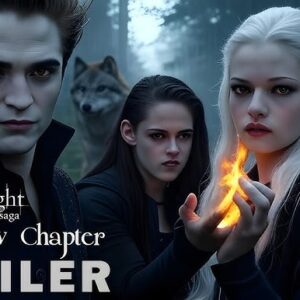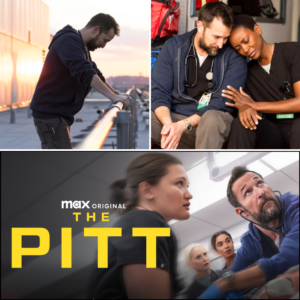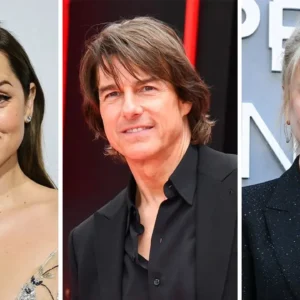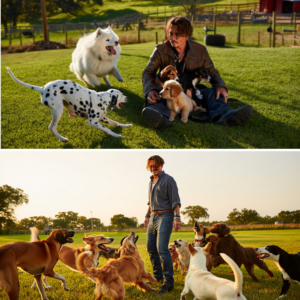In the glittering halls of the Marvel Cinematic Universe, where gods clash, billionaires banter, and infinity stones shatter realities, the unthinkable has happened. The once-unbreakable shield of fan loyalty is cracking under the weight of a single announcement: the cast for Avengers: Doomsday. With a staggering 27 characters revealed—supposedly a dream team-up of Avengers, X-Men, Fantastic Four, and more—Marvel promised the ultimate crossover event. Instead, they’ve delivered what many are calling the final nail in the coffin of a franchise that’s already been staggering like Thor after one too many Asgardian ales. The outcry? It’s not just about who’s in; it’s about who’s not. This isn’t your dad’s superhero squad—it’s a lineup so skewed toward white, male faces that fans are flooding social media with boycott calls, memes of burning Captain America shields, and tear-streaked emojis that could fill the Multiverse. 😭😭😭 Is this the day Marvel’s empire finally crumbles? Buckle up, true believers—because the doomsday clock is ticking, and it’s set to midnight.
Let’s rewind the tape to that fateful livestream in March 2025. Marvel Studios, ever the showman, dragged out the reveal like a bad Infinity War post-credits scene. Over five grueling hours—yes, five hours of directors’ chairs with names etched on the backs—they unveiled the ensemble for Avengers: Doomsday, slated to smash into theaters on May 1, 2026. Directed by the Russo Brothers, the dynamic duo behind Endgame‘s emotional gut-punch, this was meant to be the Multiverse Saga’s penultimate blowout. Robert Downey Jr. returning as the villainous Doctor Doom? Check. A multiversal mash-up pitting Wakandans against Thunderbolts, X-Men against Fantastic Four? Double check. But as the names rolled in—Chris Hemsworth as Thor, Anthony Mackie as Captain America, Pedro Pascal as Mister Fantastic, Sebastian Stan as Bucky Barnes, Paul Rudd as Ant-Man, Tom Hiddleston as Loki, Simu Liu as Shang-Chi, Wyatt Russell as U.S. Agent, David Harbour as Red Guardian, Ebon Moss-Bachrach as The Thing, Joseph Quinn as Human Torch, Lewis Pullman as… well, some guy who’ll probably die heroically—something felt off. Way off.
By the end, the tally was brutal: 27 heroes (plus Downey’s Doom for good measure), and only five of them women. Vanessa Kirby as Invisible Woman. Letitia Wright as Shuri (stepping up as Black Panther). Florence Pugh as Yelena Belova. Hannah John-Kamen as Ghost. And Rebecca Romijn reprising her blue-skinned Mystique from the Fox X-Men days. That’s it. No Brie Larson blasting in as Captain Marvel, the cosmic powerhouse who could photon-blast Doom’s mask off. No Teyonah Parris as the electrifying Monica Rambeau, fresh off her multiversal jaunt in The Marvels. No Iman Vellani’s wide-eyed Ms. Marvel, Kamala Khan, whose stretchy optimism lit up Phase 5. Hell, not even Tatiana Maslany’s sassy She-Hulk, who could lawyer her way out of a Latverian prison. And Elizabeth Olsen’s Scarlet Witch? The chaos magic queen who hexed the entire Multiverse of Madness? Vanished like Wanda in a sitcom rerun.
The racial breakdown? Even more lopsided. Sure, you’ve got Mackie, Wright, Liu, Winston Duke as M’Baku, Tenoch Huerta Mejía as Namor, and a smattering of X-Men vets like Kelsey Grammer’s blue-furred Beast. But stack that against the parade of white dudes—Hemsworth, Stan, Rudd, Hiddleston, Pascal, Harbour, Quinn, Pullman, Patrick Stewart as Professor X, Ian McKellen as Magneto, Alan Cumming as Nightcrawler, James Marsden as Cyclops—and it’s clear: this is a throwback to the Avengers of 2012, when Black Widow was the lone lady in a sea of stubble and spandex. Back then, it was groundbreaking. Now? It’s a relic from a timeline where “diversity” meant adding one token sidekick. Fans didn’t mince words on X (formerly Twitter), where hashtags like #BoycottDoomsday and #MarvelWhitewash trended harder than Thanos’ snap. “This isn’t an Avengers team-up; it’s a frat house reunion with capes,” one viral post quipped, racking up 50,000 likes before the servers begged for mercy. Another: “Marvel spent years building these women—Captain Marvel solos planets!—just to bench them for more dudes named Chris? We’re done. Streaming it pirated if at all.” The rage was palpable, a digital Wakanda chant of “Yibambe… but for boycotts.”
Why the fury? Because this isn’t just a casting snafu; it’s a betrayal of the MCU’s hard-won evolution. Remember Endgame‘s “Avengers… assemble!” moment? That iconic lineup of female heroes—Captain Marvel, Scarlet Witch, Okoye, Pepper Potts in Rescue armor, Shuri, Valkyrie, Wasp, Nebula—had audiences cheering like it was the Super Bowl halftime show. It wasn’t perfect; some grumbled it felt “forced,” a whisper that grew into a roar with The Marvels, the all-women-led flick that bombed harder than Hulk’s thunderclap. Critics—okay, let’s call them what they are: the loudest incel echo chambers—branded it “woke propaganda,” blaming diversity for every box-office hiccup since Eternals. Marvel, ever the corporate shapeshifter, seemed to listen. The Marvels underperformed? Cut the women. She-Hulk got review-bombed? Shelve the sass. Ms. Marvel dazzled but divided? Dispatch her to the shadows.
Enter Doomsday, where the Russos and Kevin Feige apparently decided to course-correct so hard they swerved into a ditch. Rumors swirled like portals gone wrong: insiders whispered of script rewrites after test audiences (read: focus groups of man-children) demanded “less girlboss, more bros.” One wild tale even claimed Downey himself—Mr. “I Am Iron Man”—nearly rage-quit when early drafts leaned too “female-focused,” one powerhouse for every bro. Whether true or tabloid fever dream, the result is the same: a cast that feels like Marvel hitting the snooze button on progress. Where’s Storm, the weather-wielding goddess from the X-Men comics, who could electrify this lineup? Halle Berry’s iconic portrayal deserves a multiversal encore, not erasure. And don’t get me started on missing Thunderbolts like Julia Louis-Dreyfus’ Valentina Allegra de Fontaine, the scheming puppet-master who could out-villain Doom on a bad hair day.
The backlash isn’t confined to keyboards; it’s bleeding into real-world action. Pre-sale tickets for Doomsday—usually a feeding frenzy—are trickling slower than Quicksilver on decaf. Fan forums, once buzzing with theory-crafting, are ghost towns of despair. “I grew up on these movies,” one Redditor lamented in a 10,000-upvote thread. “They made me believe heroes come in all shapes, sizes, genders, colors. Now? It’s like they hit reset to 2010. No thanks—my money’s on DC’s Supergirl this summer.” Boycott pledges are piling up: petitions on Change.org hit 100,000 signatures in days, calling for reshoots or at least a mid-credits apology tour. Even celebrities are chiming in—Chris Pratt, absent from the cast himself, joked on late-night TV, “They must’ve cut away from my chair… or maybe it’s the lack of room in this sausage fest.” Laughter to mask the pain? You bet.
But let’s peel back the mask—pun intended—and ask the real question: Is this doomsday for Marvel, or just growing pains? The MCU isn’t dead; it’s undead, shambling forward on the fumes of nostalgia. Deadpool & Wolverine raked in billions last summer, proving fans still crave quippy chaos. Thunderbolts*, dropping earlier this year, balanced anti-heroes with enough edge to slice through the cynicism. Yet Doomsday feels like the tipping point, the moment Marvel chose safe over spectacular. By sidelining the women and POC who’ve carried Phase 5—Shuri’s tech genius, Monica’s photon fury, Kamala’s heart—they’re not just snubbing characters; they’re alienating half their audience. Women make up 44% of comic fans now, per industry stats, and POC viewership spiked post-Black Panther. Ignore that at your peril, Disney.
Picture this alternate timeline: A Doomsday where Captain Marvel leads the charge against Doom’s doombots, her binary glow lighting up the battlefield. Scarlet Witch warps reality, turning Latverian tanks into teacups. Ms. Marvel stretches across dimensions, fist-bumping Storm as lightning cracks the sky. Shuri hacks Doom’s armor with a vibranium virus, while Yelena snipes from the shadows with Widow’s bite. That’s the movie we’d line up for at midnight, popcorn in hand, souls ignited. Instead, we’re getting a greatest-hits album of grizzled vets, recycling the same old beats. It’s efficient, sure—like reheating Endgame leftovers—but where’s the spice? The innovation? The reason to care when the stakes feel as recycled as Loki’s variants?
As filming wrapped in September 2025—yes, it’s done, locked, and loaded for that 2026 premiere—the whispers grow louder. Leaked set photos show epic clashes: Thor hurling Mjolnir at Doom’s drones, Namor flooding the set (literally, Bahrain locations were a soggy mess). But without the full spectrum of heroes, it rings hollow. Fans aren’t just mad; they’re mourning. “This was supposed to be our story,” one viral TikTok creator sobbed, her video hitting 2 million views. “The MCU taught us anyone can be a hero. Now it’s like they forgot the ‘anyone’ part.” Boycotts aside, the real casualty might be trust. Will Scarlett Johansson’s Black Widow get a solo statue in Phase 7? Or will Marvel keep chasing the ghost of 2019, when white dudes in suits ruled the box office?
Marvel, if you’re reading this—and with your data-mining prowess, you probably are—listen up. The Multiverse is vast, but fans’ patience is finite. Doomsday could be a redemption arc: a villain who unites the overlooked, a plot twist that resurrects the sidelined stars. Or it could be the flop that forces a soft reboot, ceding the cape-and-cowl crown to hungrier studios. Either way, the damage is done. Theaters might fill on opening night, nostalgia’s siren call too strong to resist. But word-of-mouth? That’s where empires fall. As one jaded fan tweeted, “I’ll watch for the cameos, but my heart’s not in it. Marvel, you broke it.” 😭
In the end, Avengers: Doomsday isn’t just a movie; it’s a referendum on what superhero stories mean in 2026. Do they reflect our messy, multifaceted world—a tapestry of powers, perspectives, and punches? Or do they shrink back to the shadows, afraid of the light? The fans have voted with their outrage, their absences, their aching what-ifs. Marvel built an empire on dreams of the impossible. Now, they’re facing the hardest truth: Ignore the dreamers, and the dream dies. Assemble? More like disassemble. The end is nigh—and this time, it’s not just Doom’s fault.



